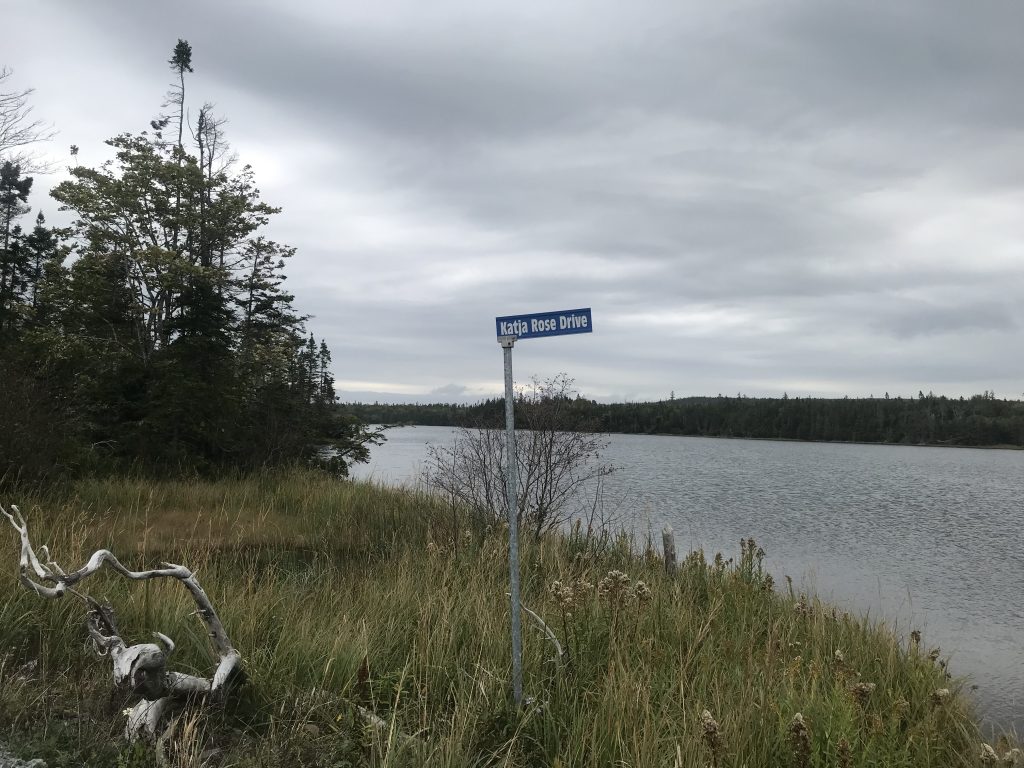This article was originally published by the Halifax Examiner on November 23, 2021. Note that since it was first published, Frank Eckhardt who is featured in this article, has been arrested twice in Cape Breton, once on extortion charges, and a second time for a slew of firearms offences.
Nova Scotia has long been a popular place for settlers, but in the last century it also became a popular place for non-residents — including many well-heeled Americans and Europeans — to purchase properties.[1]
For decades, scholars and successive governments have debated the issue of non-resident land ownership in a province with relatively little Crown land, and waterfronts being carved up into private properties that reduce public access to Nova Scotia shorelines.
The COVID-19 pandemic has caused a real estate boom in Nova Scotia, including most rural counties, as people from urban centres, elsewhere in Canada and abroad, looked for ways to escape crowded areas.
A few months into the pandemic, the German magazine, Der Spiegel, broke the story that some right-wing conspiracy theorists were marketing Cape Breton to like-minded German-speaking Europeans, which added yet another dimension to long-standing questions about non-resident land ownership in Nova Scotia.
In this three-part series, the Halifax Examiner follows up on its 2020 coverage of this issue, and looks into some of the complex questions it raises, even as the province prepares to change the property tax rate for non-resident owners.
This second article looks at more of the real estate and land development companies or individuals marketing Cape Breton Island to German speakers, and at how the trend developed.
It would be easy to miss the turn-off to the island that juts out into the Bras d’Or Lake at Hay Cove in Cape Breton.
The only indication it’s there is an innocuous sign on the edge of Highway 4 in Richmond County that advertises “waterfront” for sale. If you follow the arrow on the sign, you’ll go about a kilometer on a dirt road to a gated bridge that leads to an island.
On the island side of the bridge is a road sign that indicates that you are now on Katja Rose Drive. Just past that is a large notice that trespassing and hunting are forbidden, which advises that the island and its roads are private property.
But the “waterfront for sale” sign did seem like an invitation to visit, so it seems OK to continue along Katja Rose Drive to see what is on the market.
On either side of the gravel road are small signs fastened to trees indicating lot numbers, some with small red “sold” signs in the trees. There are also some clearings with mobile homes on them.
One lot bears a “For Sale / zu verkaufen” sign with the name and contacts for a couple in Germany. For the three-acre property, the couple are asking $96,000, the price they paid for it. There is no well or septic system on the lot, and they tell a person who recently inquired about the property that there is a high risk around the Bras d’Or Lake of drilling a well and not finding good drinking water.
Further along Katja Rose Drive there is a large billboard that has fallen down on the side of the road, which lays out the development phases of subdivision called “Adventure Island Lake Estates,” a joint venture by Canadian Pioneer Estates and Canec Land Development Inc.
Welcome to Evans Island.
It has been carved into 129 lots, most about two acres, nearly all of them purchased by non-resident Germans. Continue reading Developers are selling off Cape Breton, one subdivision after the other, to German-speaking non-residents? What — if anything — is wrong with that?



